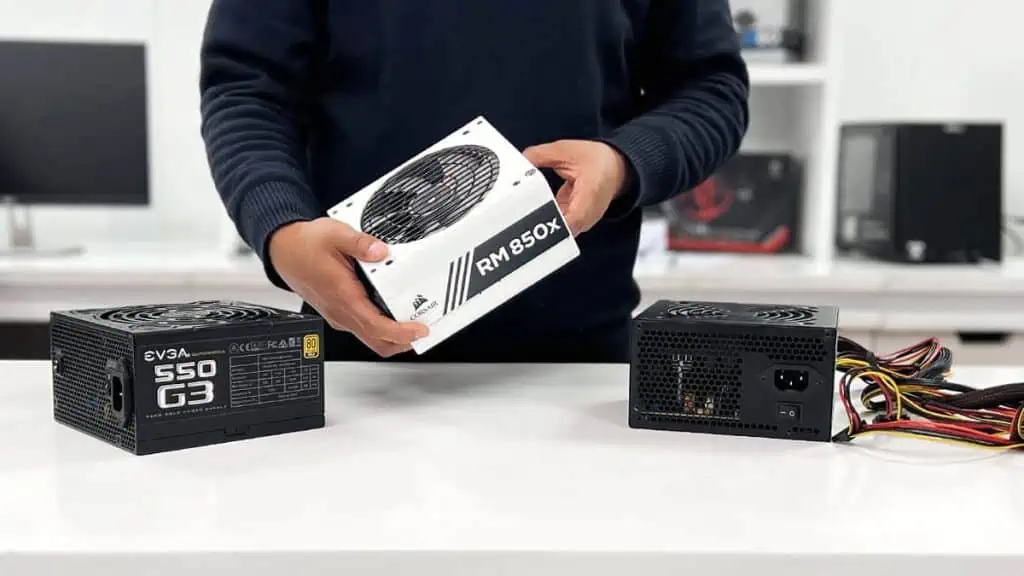People often neglect the power supply and settle for a cheap one. But this is something you should strictly avoid.
Low-grade PSUs tend to cut corners. Not only do such PSUs perform badly when functional, they can also put your entire PC at risk when they die.
I can never forget how I cheaped out on a power supply and blew it along with my 2080 Ti. So, speaking from experience, let me tell you why you should not skimp on your power supply.
Energy Wastage and Higher Electricity Bills
If you opt for a cheaper PSU, you’ll most likely have reduced power supply efficiency.
A PSU lacking 80 PLUS efficiency wastes more power in comparison to the 80 PLUS certified ones.
This not only contributes to the higher carbon footprint but also surges your electricity bills.
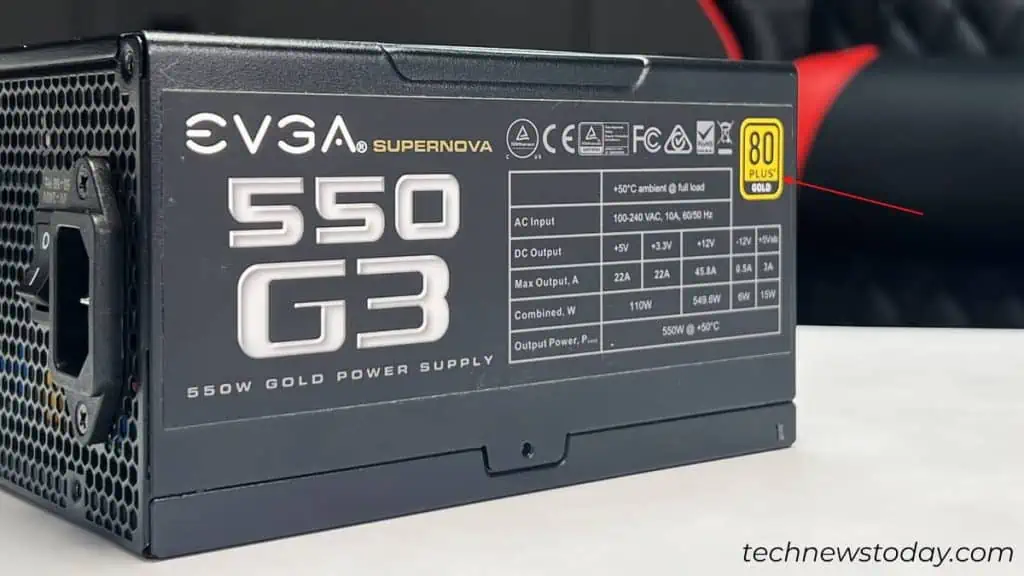
Assuming the electricity rate is $0.15 kW/h, and you use your computer for 6 hours a day, a 10% difference in the PSU efficiency can save you around $12 per annum.
80 PLUS efficiency should not be underestimated while choosing a power supply.
Overheating and Unexpected Shutdowns
This mostly happens if you have an underpowered PSU.
A power supply working at full load causes overheating and increases fan noise. Sometimes, clicking and buzzing sounds as well.
In case the system demands more power than the PSU’s rated capacity, you’ll also encounter unexpected restarts, shutdowns, and BSODs.
That’s why you should always leave enough wiggle room while getting a PSU. A headroom of 15-20% is generally preferred.
Limited Upgradability
Settling for a low-quality PSU also restricts you from upgrading/adding PC components. Overclocking may not be possible either.
First, the PSU wattage may not suffice the requirement of your build. And second, there might be an issue with connector compatibility.
Say, if you want to add a graphics card with a PCIe 5.0 connector, you need an ATX 3.0 compatible PSU. You’re not going to get it if you cheap out on the power supply.
The limited number of cable connectors could also prevent you from adding components. For instance, a non-modular power supply does not have enough PCIe cables to run a multi-GPU setup.
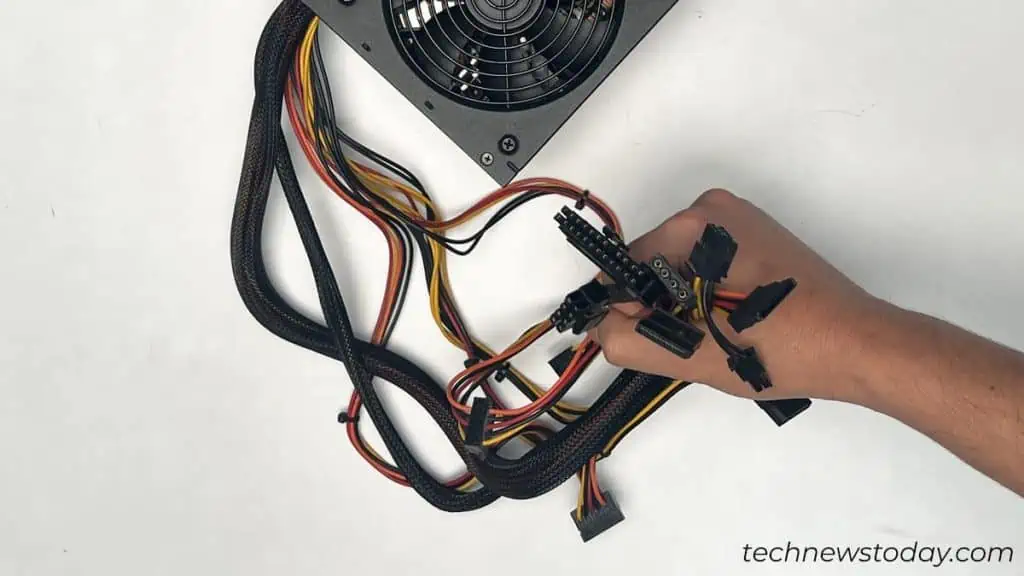
Lower Warranty Period and Poor Customer Service
Aftermarket and unbranded PSUs aren’t known for their long lifespan. They typically provide only one year of warranty or no warranty at all.
In case the power supply starts failing or blows, you’re left with no option. It is neither replaceable nor will you get a refund.
A branded PSU from a reputed manufacturer always has a good warranty period, good policies for repair/refund, and the best customer service.
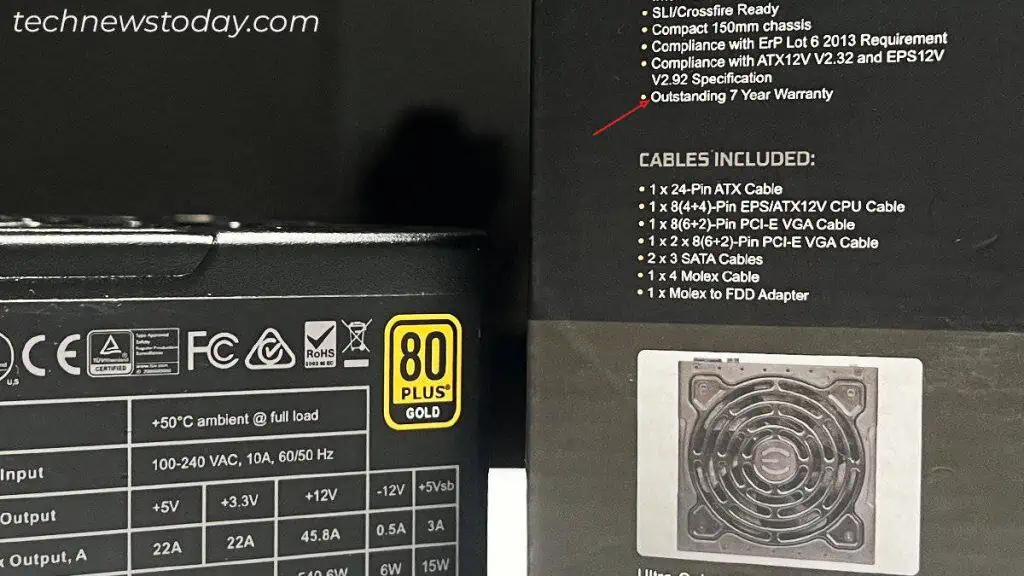
Cheap PSUs Can Explode Your Entire System
There are a lot of low-grade PSUs that fail within a year. And when they do, they also take other components along.
Such kinds of PSUs have extremely poor build quality. They can neither regulate the voltage properly nor safeguard your system at the time of voltage fluctuation.
They do not have the OCP/OPP/SCP features either. It leaves your PC at potential risk of over-current-draw, over-power-draw, or short-circuit.
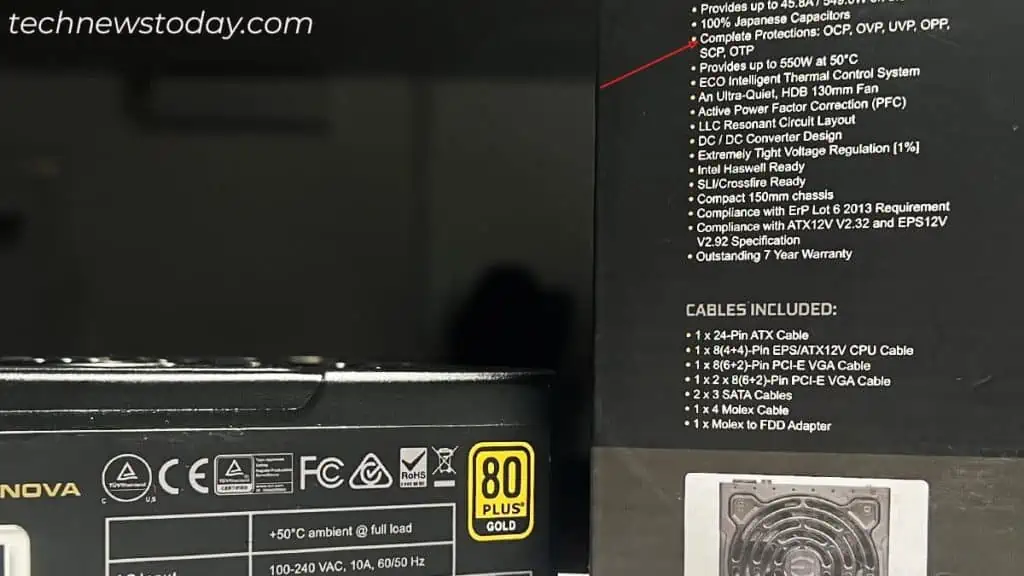
Plus, the ripple suppression is too bad when running at full load. PC components experience voltage spikes that put an enormous amount of strain on them.
Although the chances are rare, a low-quality PSU also poses the risk of electrocution and fire hazards.
Conclusion
No matter how high-end components you integrate into your build, all of them need to connect to the PSU. If it’s a bad one, you may not only lose your power supply, but the entire system.
So, compromising on your PSU is a massive blunder. If you value the safety of your components, make your decision wisely.
At least, make sure the PSU is from a reputed brand. Any 80 PLUS efficiency will work fine.
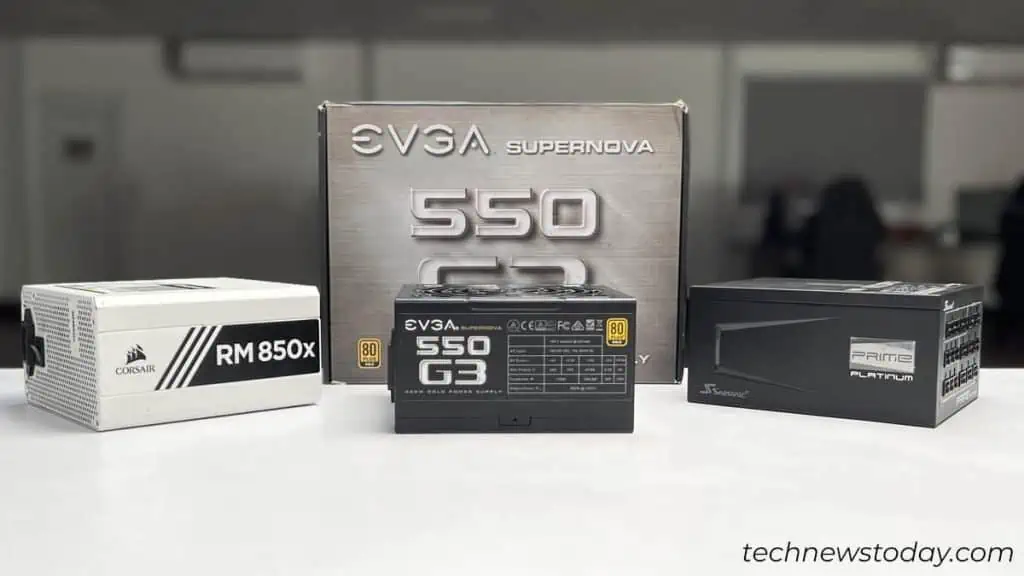
It can be tempting to settle for a cheap power supply but you may sorely regret it in the long run.
If budget is a problem, then consider waiting for CyberMonday or BlackFriday. That’s when you’ll find the best deals.
And finally, thoroughly check the reviews and ratings before making a purchase.

